Tozer speaks on the phrase ‘accept Christ’, which he says is not a biblical phrase, however, it does have the connotation of Biblical truth. Tozer explains that while telling a man to „accept Christ” is relatively right, yet, if it is not carefully explained, it can make one think that Christ is waiting hat in hand on a person’s pleasure, neatly awaiting a person’s verdict on Him (Christ). It permits one to accept Christ by an impulse of their mind or their emotion and to accept Him painlessly and with no cost and no inconvenience.The sermon is closed-captioned-You can read it off the video’s screen.
Videourile Vodpod nu mai sunt disponibile.
















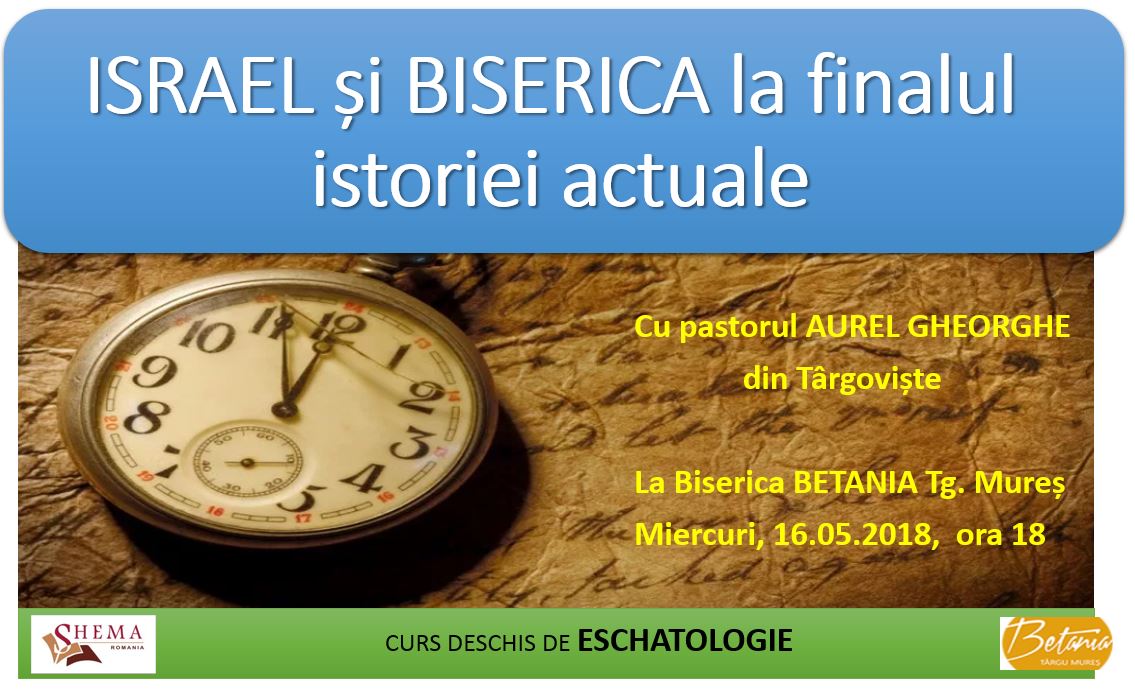






















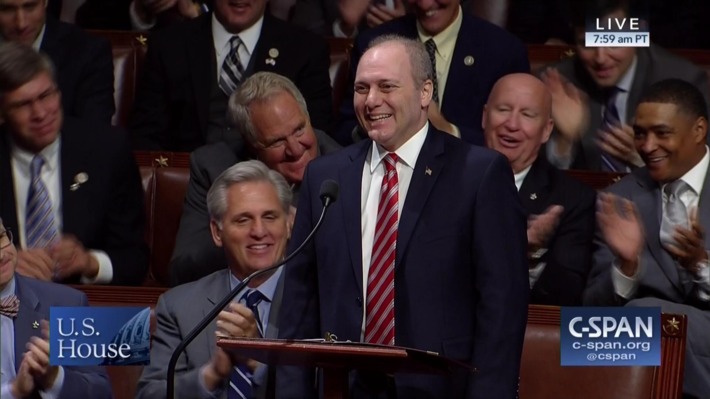



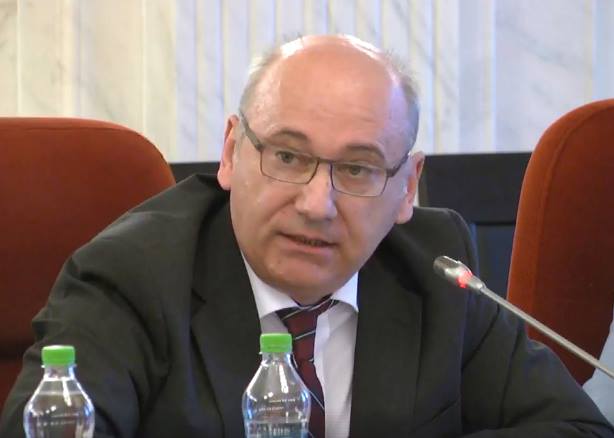





































































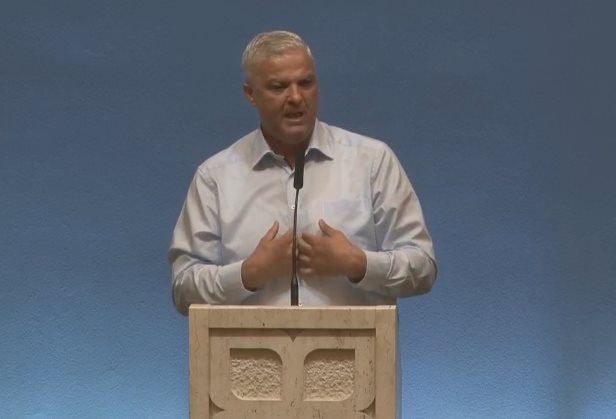








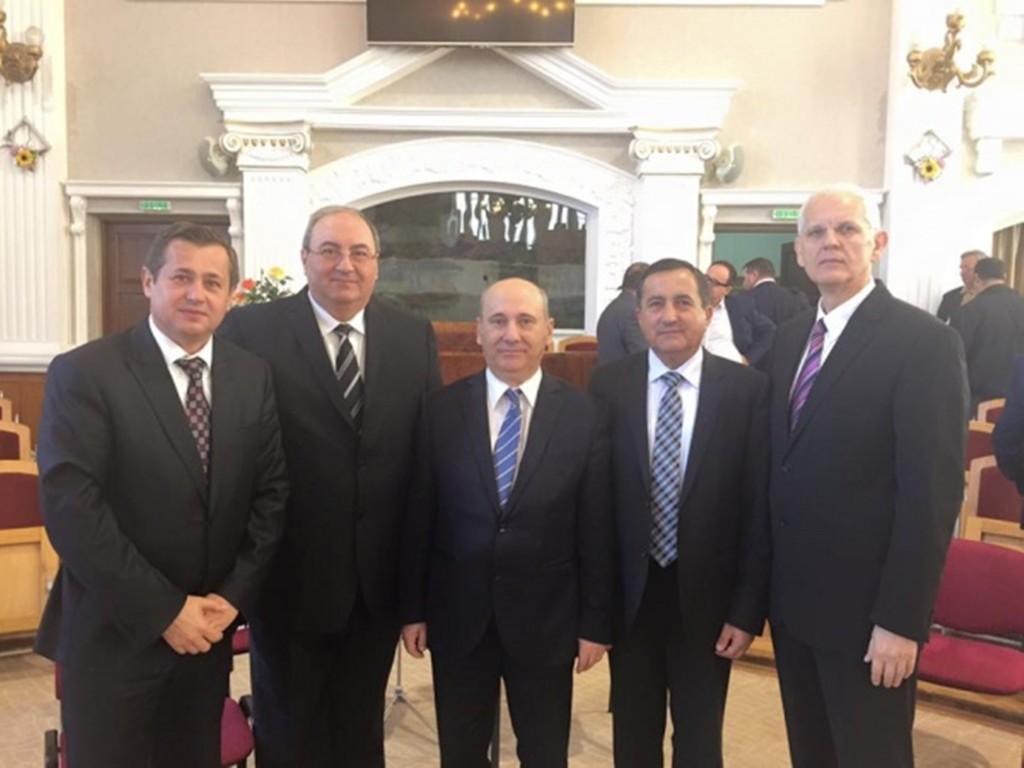






















































































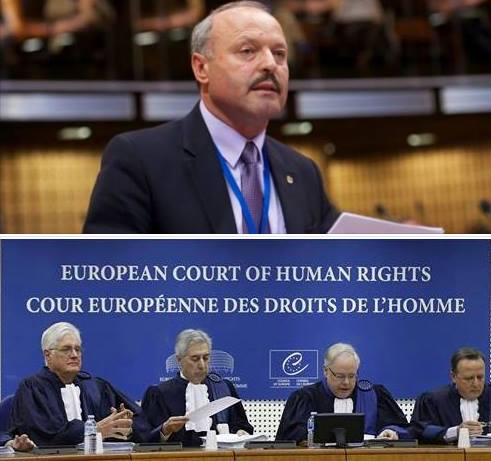




















































apr. 16, 2011 @ 00:40:50
Some commentators might strongly oppose the request of the receipt of the Holy Spirit for the fact that the prophecy in John 16:7 pertaining to the receipt of the Holy Spirit should have been fulfilled in Acts 2 by the outpouring of the Holy Spirit during the Pentecost. They treat John 4:10, John 6:32-34 and Luke 11:13 to be applicable only before the day of Pentecost and all the events as mentioned in the book of Acts to be in transitional period and these give them the conclusion that the request of the Holy Spirit should be nullified currently. Discuss.
The comment that, John 16:7 is applicable to Acts 2 in which the disciples received the outpouring of the Holy Spirit and the current practice of requesting of the Holy Spirit should be in vain, has been found to be unjustifiable in the Gospel for the following reasons:
a) John 16:7 mentions that the Holy Spirit had to be descended upon the disciples when Jesus was glorified and it should have been fulfilled in Acts 2. However, neither John 16:7 nor any verses from the Bible does mention that the practice of requesting of the Holy Spirit should be abandoned after the outpouring of the Holy Spirit as mentioned in Acts 2. By asserting that the requesting of the Holy Spirit should be nullified after the day of Pentecost, is simply the act of making presumption in which it is not stated in the Bible. Or in other words, they simply add words of presumption that is not even stated in the Bible. We have been warned in the Bible not to abuse the Scripture by adding or subtracting words. Unless a verse or sentence has been stated clearly elsewhere in the Bible that requesting of the Holy Spirit has to be ceased or to be nullified after the day of Pentecost, it should then be rational to conclude that requesting of the Holy Spirit is redundant and not be to exercised in the future.
The following are the extracts that none of us should add or remove any words from the Scripture:
Proverbs 30:6, “Add thou not unto his words, lest he reprove thee, and thou be found a liar.”
Ecclesiastes 3:14, “I know that, whatsoever God doeth, it shall be forever: nothing can be put to it, nor anything taken from it: and God doeth it, that men should fear before him.”
Isaiah 34:16, “Seek ye out of the book of the Lord, and read: no one of these shall fail, none shall want her mate: For my mouth it hath commanded, and his spirit it hath gathered them.”
Isaiah 40:8, “…the word of our God shall stand for ever.”
b)Some commentators might suggest that the phrase, they were come down prayed for them that they might receive the Holy Spirit, as mentioned in Acts 8:15 to be the exceptional case with their presumption that this event should fall during transitional period. However, neither Acts 8 nor any verses from the Bible that mentions that Acts 8 should be meant for transitional period and that should be the ultimate reason for the request of the Holy Spirit. By asserting that the event as mentioned in Acts 8 to be the transitional period has caused one to add words of presumption that is not even mentioned in the Scripture. What if the event as mentioned in Acts 8:15 in reality should not be meant for transitional period, the phrase, they were come down prayed for them that they might receive the Holy Spirit, in Acts 8:15 would give the impression that God demands the practice of the praying of the Holy Spirit as mentioned in Acts 2. As nothing is mentioned in Acts 8 that it is meant for transitional period to excuse people in the future to pray for the receipt of the Holy Spirit other than the presumptuous thought from some commentators, the intention to do away the requesting of the Holy Spirit with excuses to be given, would ultimately cause many people to be in the doom with their presumption that they have received the Holy Spirit and yet in reality, they might not have.
c) Some commentators might have suggested that the phrase, Have ye received the Holy Ghost since ye believed?, in Acts 19:2 is meant to be either the spoken words raised during the transitional period or for other excuse reason (such as, this is meant to be for exceptional case due to they had received or known merely John’s baptism) to discourage people from requesting the receipt of the Holy Spirit. However, neither Acts 19 nor any verses in the Bible does mention that Acts 19 should be meant for transitional period. The commentators simply add words of assumption to discourage people from requesting of the Holy Spirit. What if Acts 19 should not be considered as transitional period or it was not due to other reason (such as they had merely received John’s baptism) in realtiy, those people, that have this presumptuous thought, have undoubtedly added words of presumption in which they are not mentioned elsewhere in the Bible. What if praying for the receipt of the Holy Spirit has to be considered as part of the plan for God’s salvation, the intention to avoid and mislead many not to pray to receive the Holy Spirit, would cause many to be in the doom for not to be born again.
d)Neither John 4:10 nor John 6:32-34 nor Luke 11:13 mentions that the practice of the requesting of the Holy Spirit should be ceased on the day of Pentecost, it is irrational to add words of presumption in the Bible in which it is not even stated. John 16:7 emphasizes on the outpouring of the Holy Spirit when Jesus was glorified and nothing is mentioned vividly in the Bible about the cessation of the request of the Holy Spirit after the Pentecost. The commentators simply derive conclusion through guessing work that the practice of the requesting of the Holy Spirit should have been ceased after the Pentecost or the so-called, transitional period, that is defined by them, but not mentioned in the Bible.
Any mis-interpretation on the part of the way to salvation would simply lead people to presume that they are saved and have received the Holy Spirit without the realisation of the possible absence of the Holy Spirit within their bodies.
Some commentators might use the following verses to oppose the use of sinner’s prayer with the excuse that the Holy Spirit should be with them simply by mentioning that they do confess that Jesus is the Son of God and their recognition about the resurrection of Jesus:
1 John 4:15, “Whosoever shall confess that Jesus is the Son of God, God dwelleth in him, and he in God.”
Romans 10:9, “That if thou shalt confess with the mouth the Lord Jesus, and shall believe in thine heart that God hath raised him from the dead, thou shalt be saved.”
Discuss.
At a glance, the phrase, Whosoever shall confess that Jesus is the Son of God, in 1 John 4:15 seems to imply that all those people, that confess Jesus is the Son of God, must have received the Holy Spirit. However, the following are the two distinctive cases from the Bible that have brought us to the attention that not all the people, that proclaim Jesus is the Son of God, have received the Holy Spirit:
a) Instances below that give us the implication that people could proclaim Jesus to be the Son of God even prior to the resurrection of Jesus:
i) Matthew 14:33, „Then they that were in the ship came and worshipped him, saying, of a truth thou art the Son of God.”
ii) Matthew 27:54, „Now when the centurion, and they that were with him, watching Jesus, saw the earthquake, and those things that were done, they feared greatly, saying, Truly this was the Son of God.”
iii)Mark 15:39, „And when the centurion, which stood over against him, saw that he so cried out, and gave up the ghost, he said, Truly this man was the Son of God.”
iv) John 1:49, “Nathamael answered and saith unto him, Rabbi, thou art the Son of God; thou art the king of Israel.”
v) John 11:27, “She saith unto him, Yea, Lord: I believe that thou art the Christ, the Son of God, which should come into the world.”
The following are the extracts that prove that those people, that are mentioned in Matthew 14:33, 27:54; John 1:49, 11:27, and Mark 15:39, did not receive the Holy Spirit prior to the resurrection of Jesus:
i) John 7:39, “(But this spake he of the Spirit, which they that believe on him should receive, for the Holy Ghost was not yet [given]: because that Jesus was not yet glorified.)”
ii) John 16:7, “Nevertheless I tell you the truth; It is expedient for you that I go away: for if I go not away, the Comforter will not come unto you; but if I depart, I will send him unto you.”
Despite Matthew 14:33, 27:54; Mark 15:39; John 1:49 and John 11:27 were the events occurred prior to the day that Jesus was glorified and these people should not have received the Holy Spirit as mentioned in John 7:39 and 16:7, yet they could proclaim Jesus as the Son of God at the absence of the Holy Spirit. This gives the ultimate conclusion that those people, that could proclaim Jesus to be the Son of God in this modern society, do not give any strong proof that they have God to be dwelt within their bodies.
b) Instances from the Scripture to prove that even demons could comment that Jesus is the Son of God and yet God do not dwell within their bodies. The following are the extracts:
i) Matthew 8:29, „And, behold, they cried out, saying, What have we to do with thee, Jesus, thou Son of God? art thou come hither to torment us before the time?”
ii) Mark 3:11, “And unclean spirits, when they saw him, fell down before him, and cried, saying, Thou art the Son of God.”
iii) Luke 4:41, “And devils also came out of many, crying out, and saying, Thou art Christ the Son of God. And he rebuke them suffered them not to speak: for they knew that he was Christ.”
iv) Luke 8:28, “When he saw Jesus, he cried out, and fell down before him, and with a loud voice said, what have I to do with thee, Jesus, thou Son of God most High? I beseech thee, torment me not.”
From the above explanations and the extracts, these could easily arrive at the conclusion that it is irrational to determine whether a person has received the Holy Spirit by simply hearing him/her in proclaiming that Jesus is the Son of God.
As it is irrational to determine whether a person has received the Holy Spirit simply by hearing him/her in proclaiming that Jesus is the Son of God, does it imply that 1 John 4:15 is contradictory to Matthew 14:33, 27:54; John 1:49, 11:27, and Mark 15:39? No, it is irrational to jump into this conclusion what if the word, confess, in 1 John 4:15 in reality should be interpreted with broader definition that it should be accompanied with action instead of restricting it to merely mouth-to-mouth confession. When the word, confess, in 1 John 4:15 has been interpreted with broader definition to include our sincere action towards God in treating and letting Jeus to be truly the Son of God to reign in our lives, we then would discover 1 John 4:15 does not contradict itself with other verses in the Bible. Or in other words, the person that confess that Jesus is the Son of God need to have high respect of Jesus and to allow Him to come into his/her life so as to take control of him/her.
James 2:19 provides the truth that the devils even believe in God and yet they tremble as a result of their faith without action. A person might proclaim that he/she believes in Jesus to be the Son of God and his/her Lord and yet God is interested whether his/her faith is accompanied with action through his/her willingness to accept Him to be his/her Personal Saviour and Lord. The following are the extracts from James 2:19-24 and these are self-explanatory:
James 2:19-24, “Thou believest that there is one God; thou doest well: the devils also believe, and tremble. But wilt thou know, O vain man, that faith without works is dead? Was not Abraham our father justified by works, when he had offered Isaac his son upon the altar? Seest thou how faith wrought with his works, and by works was faith made perfect? And the scripture was fulfilled which saith, Abraham believed God, and it was imputed unto him for righteousness: and he was called the Friend of God. Ye see then how that by works a man is justified, and not by faith only.”
Some commentators might strongly condemn sinner’s prayer by mentioning that this is not found anywhere in the Bible. Discuss.
Let’s look into all the factors that should contribute towards sinner’s prayer prior to looking into the matter above:
a) Repentance: Repentance is significant for non-Christians for their conversions. The intention to do away repentance among non-Christians would not cause those that persist in sinning without repentant heart, to be born again due to God regard not their prayer. The following are the extracts:
Psalms 66:18, “If I regard iniquity in my heart, the Lord will not hear me.”
Isaiah 1:15, “And ye spread forth your hands, I will hide mine eyes from you: yea, when ye make many prayers, I will not hear: your hands are full of blood.”
Isaiah 59:1-2, “Behold, the Lord’s hand is not shortened, that it cannot save; neither his ear heavy, that it cannot hear: But your iniquities have separated between you and your God, and your sins have hid his face from you, that he will not hear.”
Nevertheless, non-Christians have to repent from sinning, such as, abandoning in worshipping idols, and etc. prior to their commencement of Sinner’s prayer or else their prayer would simply be in vain.
b) Confession of Sins: The introduction of confession of sins in sinner’s prayer among non-Christians would certainly direct their mind to the right path in acknowledging and confessing their sins before God for the claim of the promise of sin’s cleansing as spelt out below:
1 John 1:9, “If we confess our sins, he is faithful and just to forgive our sins, and to cleanse us from all unrighteousness.”
The same is mentioned in Proverb 28:13, “(that) He that covereth his sins shall not prosper: but whoso confesseth and forsaketh them shall have mercy.”
Bearing in mind that iniquities are the barriers that cause non-Christians not to reach out to God since God regard not iniquities. The following are the extracts for detailed examination and analyses:
Psalms 5:4-5, “For thou art not a God that hath pleasure in wickedness: neither shall evil dwell with thee…thou hatest all workers of iniquity.”
Psalms 7:11, “…God is angry with the wicked every day.”
Isaiah 59:1-2, “Behold, the Lord’s hand is not shortened, that it cannot save; neither his ear heavy, that it cannot hear: But your iniquities have separated between you and your God, and your sins have hid his face from you, that he will not hear.”
Proverbs 15:26, “The thoughts of the wicked are an abomination to the Lord…”
Proverbs 15:29, “The Lord is far from the wicked…”
Would this imply that the verses above contradict the phrase, For God so loved the world, in John 3:16? No, the verses above do not contradict the phrase, For God so loved the world, in John 3:16 provided that the word, world, in John 3:16 has to exclude evil deeds, disobedience to God and all kinds of iniquities. Without excluding iniquities from the definition of the word, world, the interpretation would turn up to be unjustifiable that God love people to commit iniquities, such as, stirring up violence, havoc and etc. in the society.
The confession of sins in sinner’s prayer enables non-Christian to express their iniquities towards God to ease the sins’ cleansing especially sins have caused them to be separated from God as mentioned in Isaiah 59:1-2 and that is why there is a need for them to confess their sins before God for sins’ cleansing for the claim of the promise as mentioned in 1 John 1:9, “(that) If we confess our sins, he is faithful and just to forgive us our sins, and to cleanse us from all unrighteousness.” Romans 4:7, „[saying], Blessed [are] they whose iniquities are forgiven, and whose sins are covered.”
What if non-Christians insist their perfection without sins, would their sins be forgiven? 1 John 1:8, “If we say that we have no sin, we deceive ourselves, and the truth is not in us.” As the phrase, the truth is not in us, is mentioned in 1 John 1:8 with the phrase, If we say that we have no sin, it implies that God’s truth is not with non-Christians if they insist their perfection without sins. As God’s truth is not with them if they insist they are without sins, there should not be any possibility that God would be with them or their sins could be forgiven. The same is mentioned in 1 John 1:10, “(that) If we say that we have not sinned, we make him a liar, and his word is not in us.”
The reason for all non-Christians need to express their sins towards God by confession through sinner’s prayer, has been spelt out as follows:
Romans 3:23, “For all have sinned, and come short of the glory of God.”
Romans 5:12, “Wherefore, as by one man sin entered into the world, and death by sin; and so death passed upon all men, for that all have sinned:”
Romans 5:18-19, “Therefore as by the offence of one [judgment came] upon all men to condemnation;…For as by one man’s disobedience many were made sinners,…”
c) Faith has to be exercised throughout sinner’s prayer. This is due to non-Christians would not expect to receive any from sinner’s prayer if they do not exercise faith throughout/after sinner’s prayer, such as, they do not believe their sins have been forgiven; they do not believe that the Holy Spirit has come into their bodies, and etc.; after sinner’s prayer. The following are the extracts:
James 1:6-8, “But let him ask in faith, nothing wavering. For he that wavereth is like a wave of the sea driven with the wind and tossed. For let not that man think he shall receive any thing of the Lord. A double minded man is unstable in all his ways.”
d) Sinner’s prayer should also include forgiveness of sins of others. This is due to God demand non-Christians to forgive others prior to granting the forgiveness of their sins. The following are the supporting verses:
Matthew 6:14-15, “For if ye forgive men their trespasses, your Father will also forgive you: But if ye forgive not men their trespasses; neither will your Father forgive your trespasses.”
Mark 11:25-26, “And when ye stand praying, forgive, if ye have ought against any: that your Father also which is in heaven may forgive you your trespasses. But if you do not forgive, neither will your father which is in heaven forgive your trespasses.”
The Lord allow confession of sins to be included in prayer. The following are the extracts for proves:
Matthew 6:12, “(mentions that) And forgive us our debts, as we forgive our debtors.”
Luke 11:4, “And forgive us our sins; for we also forgive every one that is indebted to us.”
Nevertheless, there is a preference to include the request of the forgiveness of sins for others during sinner’s prayer.
e) Request for the receipt of the Holy Spirit:
The following are the extracted verses that demand non-Christians to request for the receipt of the Holy Spirit:
John 4:10, “ Jesus answered and said unto her, If thou knewest the gift of God, and who it is that saith to thee, Give me to drink; thou wouldest have asked of him, and he would have given thee living water.”
John 6:32-34, “ Then Jesus said unto them, Verily, verily, I say unto you, Moses gave you not that bread from heaven; but my Father giveth you the true bread from heaven. For the bread of God is he which cometh down from heaven, and giveth life unto the world. Then said they unto him, Lord, evermore give us this bread.”
Luke 11:13, “If ye then, being evil, know how to give good gifts unto your children: how much more shall [your] heavenly Father give the Holy Spirit to them that ask him?”
Acts 19:2, „He said unto them, Have ye received the Holy Ghost since ye believed? And they said unto him, We have not so much as heard whether there be any Holy Ghost.”
John 4:10, 6:32-34 and Luke 11:13 above are the spoken words from Jesus that direct non-Christians for the request of the Holy Spirit. Many commentators say that the request of the Holy Spirit should have ceased on the day of Pentecost. However, none of the verses in the Bible do mention the request of the Holy Spirit should have ceased after the Pentecost in Acts 2. What if the praying for the receipt of the Holy Spirit should not cease in reality and that the event in Acts 19 was not the transitional period, those people that refuse to pray for the receipt of the Holy Spirit will be in the doom and the phrase, Have ye received the Holy Spirit since ye believed?, in Acts 19:2 would turn up to be the warning among non-Christians for their earnest request of the receipt of the Holy Spirit.
e) To include acknowledging Jesus’ resurrection in sinner’s prayer: This is by virtue of Jesus’ resurrection is part of the plan for salvation. The following is the extract:
Romans 10:9, “That if thou shalt confess with thy mouth the Lord Jesus, and shalt believe in thine heart that God hath raised him from the dead, thou shalt be saved.”
After reading the above factors that have direct impact upon salvation. Now, let’s examine the book of Acts cautiously below for the reply that some commentators have brought out to do away sinner’s prayer with the excuse that it is not mentioned in the Bible:
1) Acts 6:6-7, “Whom they set before the apostles: and when they had prayed, they laid their hands on them. And the word of God increased; and the number of the disciples multiplied in Jerusalem greatly; and a great company of the priests were obedient to the faith.”
As the phrase, the disciples multiplied…greatly, is mentioned in Acts 6:7, it implies the great number of non-Christians were converted to Christianity. Nothing is mentioned in Acts 6:6-7 or elsewhere that these people did repent from sinning prior to their conversion. One must not be quick in jumping into the conclusion by using this event to support that non-Christians need not to repent in order to be born again or else he/she is simply adding words of assumption in which it is not stated in Acts 6;6-7. As nothing is mentioned in Acts 6:6-7 that they did repent from sin, there are two possibilities with regard to their conversion. First assumption is that they might have repented from sinning and yet it was not mentioned in Acts 6:6-7. Another alternative possibility is that they did not repent from sinning, such as, continuing in worshipping idols; creating havoc in the society; and etc. As repentance has to be sought prior to the conversion to Christianity, they must have repented from sin prior to receiving the Holy Spirit. Thus, the absence of the word, repentance, in Acts 6:6-7 does not imply that they did not repent from sins prior to receiving the Holy Spirit.
The same is for the request of Jesus to come into their lives. Neither Acts 6:6-7 have mentioned that these people did receive the Holy Spirit nor these verses have mentioned clearly that they did or did not request for the receipt of the Holy Spirit. The absence of the words whether they did or did not request for the receipt of the Holy Spirit does not imply that they did not request Jesus to come into their lives. The insisting that they did not ask Jesus to come into their lives even though it is not mentioned at all, has indeed added words of assumption in which it is not even stated in Acts 6:6-7. What if these people did ask for the receipt of the Holy Spirit and yet it is not stated in Acts 6:6-7, the discouraging among non-Christians to pray for the receipt of the Holy Spirit would simply cause them not to be born again.
The same is for other factors, such as, confession of sins; acknowledge Jesus to die on the cross, are not even spelt out in the event of Acts 6:6-7. The absence of these factors does not imply that they did not do it.
In conclusion for Acts 6:6-7, despite the phrase, sinner’s prayer, is not mentioned in the book of Acts and yet the elements of the sinner’s prayer can be found here and there in the Bible. Even in the book of Acts, certain part of the event does mention part of it. However, the absence of the elements that should exercise prior to the receipt of the Holy Spirit in Acts 6:6-7, does not imply that they did not exercise it.
2) Acts 8:34-38, “And the eunuch answered Philips, and said, I pray thee, of whom speaketh the prophet this? Of himself, or of some other men? Then Philip opened his mouth, and began at the same Scripture, and preached unto him Jesus. And as they went on their way, they came unto a certain water: and the eunuch said, See, here is water; What doeth hinder me to be baptized? And Philip said, If thou believest with all thine heart, thou mayest. And he answered and said, I believe that Jesus Christ is the Son of God. And he commanded the chariot the stand still: and they went down into water, both Philip and the eunuch: and be baptized him.”
Meditate the verses above and you would discover nothing is mentioned in the paragraph above that the eunuch had repented from sin prior to his baptism. As nothing is mentioned that he did repent from sin, this event should not be used to conclude that non-Christians could sin continually without repentant heart in order to be saved.
Nothing is mentioned that the eunuch did receive the Holy Spirit except the word, baptism, does not imply that it is not significant to receive the Holy Spirit. As nothing is mentioned in Acts 9:38 that he did receive the Holy Spirit except the phrase, be baptized, the eunuch most likely should have received the Holy Spirit in Acts 8:38 in which the phrase, be baptized, is mentioned. Thus, despite he confessed Jesus is the Son of God in Acts 8:37, yet he only received the Holy Spirit after his baptism in Acts 8:37. It is obvious that there is a gap (between the time that he confessed Jesus to be the Son of God in Acts 8:37 and the time that he received the Holy Spirit in Acts 8:38) in which the Holy Spirit is not with him. It gives us the implication that confession that Jesus is the Son of God might not be accompanied with immediate receipt of the Holy Spirit.
The above explanation proves that the absence of the elements of sinner’s prayer in the book of Acts, does not imply the people in the past did not exercise them. What if they did repent from sins; confessed sins before God for the forgiveness of sins; acknowledged Jesus has been resurrected; and praying for the receipt of the Holy Spirit and yet they are not mentioned clearly in the book of Acts, or what if these should be the plan of God for salvation, the intention to do away sinner’s prayer could cause many to fall and not to be born again.
3) Acts 10:44-48, “While Peter yet spake these words, the Holy Fell on all them which heard the word. And they of the circumcision which believed were astonished, as many as the Gentiles also was poured out the gift of the Holy Ghost. For they heard them speak with tongues, and magnify God. Then answered Peter, Can any man forbid water, that these should not be baptized, which have received the Holy Ghost as well as we? And he commanded them to be baptized in the name of the Lord. Then prayed him to tarry certain days.”
The phrase, they of the circumcision which believed, in Acts 10:45 undoubtedly refers to the Jews since they were circumcised. The phrase, the Holy Ghost fell on them which heard the word, in Acts 10:44 refers to the Gentiles that received the Holy Spirit and yet the word, heard, is mentioned instead of the word, believed. Nothing is mentioned in Acts 10:44 that they believed in Jesus except that they heard the word. The absence of the word, believed, in Acts 10:44 does not imply that the Gentiles did not believe in Jesus prior to the receiving of the Holy Spirit.
Nothing is mentioned in Acts 10:44-48 that the Gentiles did repent from sin, does not imply that Gentiles could continue in sinning without repentant heart prior to the receipt of the Holy Spirit. The phrase, as the Gentiles also was poured out the gift of the Holy Ghost, is mentioned in Acts 10:45 prior to the phrase, And he commanded them to be baptized in the name of the Lord, it implies that the receipt of the Holy Spirit could be before the baptism was performed.
The following are the extracts from other events in the book of Acts in which the word, repentance, is not mentioned and yet those non-Christians should have repented from sin:
Acts 8:12-17, “But when they believed Philip preaching the things concerning the kingdom of God, and the name of Jesus Christ, they were baptized, both men and women. Then Simon himself beloved also: and when he was baptized, he continued with Philip, and wondered, beholding the miracles and signs which were done. Now when the apostles which were at Jerusalem heard that Samaria had received the word of God, they sent unto them Peter and…who, they received the Holy Spirit…Then laid their hands on them, and they received the Holy Ghost.”
Acts 11:14-15, “Who shall tell thee words, whereby thou and all thy house shall be saved. And as I began to speak, the Holy Ghost fell on them, as on us at the beginning.”
Acts 11:24, “For he was a good man, and full of the Holy Ghost and of faith: and much people was added unto the Lord.”
Acts 16:31-33, “And they said, Believe on the Lord Jesus Christ, and thou shalt be saved, and thy house. And they spoke unto him the word of the Lord, and to all that were in his house. And he took them the same hour of the night, and washed their stripes; and was baptized, he and his, straightway.” Again nothing is mentioned that these people did repent from sin and not even mentioning they did receive the Holy Spirit except the phrase, be baptized.
Some might argue that Acts 2:38 did mention the word, repent, to support that the Book of Acts encourages repentance. My query is why the word, repent, is not mentioned repeatedly in most of the events of the Book of Acts except Acts 2:38. As it is only mentioned in Acts 2:38 instead of in other events of the Book of Acts, it implies that the absence of the word, repent, in other parts of the Book of Acts, does not imply that non-Christians did not exercise it. The same is for the request of the receipt of the Holy Spirit. The absence of the phrase, to ask Jesus into our heart, in the book of Acts, does not imply that they did not exercise it.
From the above extracts and explanations, it could easily arrive at the conclusion that it is not justifiable to conclude that repentance is not necessary for the conversion of non-Christians just simply due to the absence of it in the book of Acts. The same is that it is irrational to oppose people to ask Jesus to come into their heart just because it is not stated in the Book of Acts. Similarly, no conclusion should be drawn out that confession of sins for non-Christians to God should be done away just simply with the excuse that it is not stated in the book of Acts.
Some commentators might suggest that believing leads to immediate forgiveness of sins and the receipt of the Holy Spirit. Discuss.
My personal conviction is that believing does not lead to immediate receipt of the Holy Spirit and sins’ cleansing. Non-Christians that believe in Jesus have to be humble themselves before God to confess their sins before God to seek His forgiveness and the request for the receipt of the Holy Spirit.
For instance, if the doctrine, believing leads of immediate forgiveness of sins, is true, 1 John 1:9 would turn up to be in error for the following reasons:
a) Non-Christians needs not to confess their sins before God since God do not forgive their sins and their sins could not be forgiven unless they believe in Jesus instead of through confession of sins to God provided that the doctrine, believing leads to sins’ cleansing, is true.
b) Christians do not need to confess sins before God due to their believes have granted them the forgiveness of sins and there is no need for them to confess their sins to God provided that the doctrine, believing leads to immediate sins’ cleansing, is true.
The above shows that the doctrine, believing leads to immediate sins’ cleansing, has contradicted the fundamental truth in 1 John 1:9. As 1 John 1:9 contains any error, the doctrine, that believing leads to immediate sins’ cleansing, should be rejected and that there is a need to confess sins before God for sins’ cleansing. Thus, there is a need for non-Christians to confess their sins before God to seek His forgiveness and that is why sinner’s prayer must not be done away.
For instance, if the doctrine, believing leads to immediate receipt of the Holy Spirit, is true, the phrase, Have ye received the Holy Ghost since ye believed?, in Acts 19:2 would turn up to be in error for the following reasons:
a) If the doctrine, believing leads to immediate receipt of the Holy Spirit, is true, the disciples should not ask for the receipt of the Holy Spirit before the Pentecost since the Holy Spirit would not descend upon them prior to the day that Jesus was glorified as mentioned in John 16:7. As the Holy Spirit would not descend upon the disciples prior to the Pentecost, the phrase, Have ye received the Holy Ghost since ye believed?, in Acts 19:2 should not be asked. This is by virtue of the Holy Spirit would descend automatically upon the disciples upon the day of Pentecost and that there is no need for them to ask for the receipt of the Holy Spirit provided believing leads to immediate receipt of the Holy Spirit.
b) If the doctrine, believing leads to immediate receipt of the Holy Spirit, is true, the phrase, Have ye received the Holy Ghost since ye believed, in Acts 19:2, should not be asked even after the day of Pentecost. This is by virtue of the Holy Spirit would descend automatically upon the disciples after their believing in Jesus provided that the doctrine, believing leads to immediate receipt of the Holy Spirit, is true.
c) If the doctrine, believing leads to immediate receipt of the Holy Spirit, is true, the phrase, Have ye received the Holy Ghost since ye believed, in Acts 19:2 should not be asked among non-Christians. This is by virtue of non-Christians in this modern society need not to ask for the receipt of the Holy Spirit since God come to them at the time of their belief provided that the doctrine, believing leads to immediate receipt of the Holy Spirit, is true.
d) If the doctrine, believing leads to immediate receipt of the Holy Spirit, is true, the phrase, Have ye received the Holy Ghost since ye believed, in Acts 19:2, should not be asked among Christians. This is by virtue of Christians in this modern society should not ask for the receipt of the Holy Spirit since their believing in Jesus has led to the immediate receipt of the Holy Spirit provided that the doctrine, believing leads to immediate receipt of the Holy Spirit, is true.
As the doctrine, believing leads to immediate receipt of the Holy Spirit, has led to the contradiction of the phrase, Have ye received the Holy Ghost since ye believed?, in Acts 19:2, it implies that this doctrine should be rejected and that the doctrine, believing leads to immediate receipt of the Holy Spirit, should not be established.
Some commentators might oppose sinner’s prayer with the excuse that the Scripture does not demand people to ask Jesus into their heart. Discuss.
The most obvious verses to show that the Bible does contain verses pertaining to asking Jesus into our heart:
Acts 8:15, „they were come down prayed for them that they might receive the Holy Spirit…” The phrase, prayed for them that they might receive the Holy Spirit, in Acts 8:15 implies that the people did ask Jesus into their heart.
Luke 11:13, “If ye then, being evil, know how to give good gifts unto your children: how much more shall [your] heavenly Father give the Holy Spirit to them that ask him?” The phrase, [your] heavenly Father give the Holy Spirit to them that ask him, in Luke 11:13 implies Jesus even mentioned the asking of the Holy Spirit into our heart.
The less obvious verses that give the hint in the Bible pertaining to asking Jesus into our heart:
John 4:10, “ Jesus answered and said unto her, If thou knewest the gift of God, and who it is that saith to thee, Give me to drink; thou wouldest have asked of him, and he would have given thee living water.” The phrase, living water, in John 4:15 should refer undoubtedly to eternal life. As the phrase, If thou knewest the gift of God…thou wouldest have asked of him, is mentioned in Acts 4:10 with the phrase, living water, it implies the asking of Jesus to receive the gift of God, that is the Holy Spirit, that leads to living water and that is eternal life. The word, asked, is mentioned in this verse.
John 6:32-34, “ Then Jesus said unto them, Verily, verily, I say unto you, Moses gave you not that bread from heaven; but my Father giveth you the true bread from heaven. For the bread of God is he which cometh down from heaven, and giveth life unto the world. Then said they unto him, Lord, evermore give us this bread.” The phrase, the true bread, in John 6:32 should refer to Jesus. As the phrase, Then said they unto him…give us this bread, is mentioned in Acts 6:34 with the phrase, true bread, in John 6:32, it implies that the disciples did ask for the receipt of the Holy Spirit.
Acts 19:2, „He said unto them, Have ye received the Holy Ghost since ye believed? And they said unto him, We have not so much as heard whether there be any Holy Ghost.” The phrase, Have ye receive the Holy Ghost since ye believed?, in Acts 19:2 implies the possibility of the absence of the Holy Spirit among the people that believe in Jesus. Or else, there should not be any reason for Acts 19:2 to raise a query that, Have ye receive the Holy Ghost since ye believed? Instead, the verse should mention that the Holy Ghost is in you since ye believed. As the phrase, Have ye receive the Holy Ghost since ye believed?, is mentioned in Acts 19:2, non-Christians have to express to God for their desire to allow Jesus to come into their heart to be their Lord and Personal Saviour.
apr. 16, 2011 @ 19:52:34
Jonathan, is this found somewhere on a website? It is interesting because many say that a simple prayer asking Jesus into one’s heart is not enough. While that is true, there has to be a point of asking Jesus into one’s heart, and the verses you give in your comment are very instructive, but often missing when preachers make an ‘altar call’, thus the non believers believe that all that is needed from them is to ask Jesus into their heart.
So, I think your statements are very useful and would like to know if I can point someone to them.
ian. 31, 2013 @ 23:19:40
related article:
http://jesaja662.wordpress.com/2013/02/01/false-prophets-do-not-preach-repentance/
feb. 01, 2013 @ 09:01:17
thanks for the link. Dr. Martyn Lloyd-Jones is one of my favorite preachers from the past century.
feb. 02, 2013 @ 00:04:59
Amen!
feb. 01, 2013 @ 01:44:39
The gospel call is „repent and believe” … repent is the changing of one’s mind and direction. That is where Christianity becomes difficult…when you have to forsake your old life style…we see it over and over in the Gospels when multitudes are following the Lord until they realize there is a heavy price that only the born again are willing to pay…. and that is the part that is not preached…
you can ask Jesus in your heart until you are blue in the face…. most of the time nothing happens….
feb. 01, 2013 @ 09:40:59
this is the turning point of a believer, to repent and then believe, yet sadly, this is the forgotten part, even though you cannot be a believer if you have not repented.
Yesterday I watched a video where Rick Warren was dissected for not mentioning repentance and he was said to not be preaching the Gospel. That was maybe 6 years ago. Just recently on R.C. Sproul’s video, he was taking questions and the question was „Why don’t Christians care about sin?” Alistair Begg said, „Christians don’t know what their union with Christ means’- not much elaboration when this is the downfall of the church, as we know from studies the high percentage of pastors addicted to pornography (which the last time I checked was SIN- and according to Jesus, it counts as adultery).
Then Sproul interjects- and rephrases the question „Why don’t Christians CARE ENOUGH ABOUT THEIR SIN? and what do you think of his answer? If you were a christian living in sin, would this motivate you to stop, or even suggest to you you ought to stop? Here is his answer:
And it’s because our hearts are still lust til fully sanctified. And, God the Holy Spirit, in His convicting power has not fully revealed to us the sinfulness of our sin. Exhibit A is David. After his ghastly act of adultery and proxy murder of Uriah was trying to cover it up. Was He was a believing man and he’s down in the dregs of evil, and yet he doesn’t really show a whole lot of concern until God sends that prophet to him and tells him the story. And when the light dawns, when Nathan says, “Thou art the man,” David sees the evil of his sin and writes Psalm 51. Psalm 51 could never have been written by a human being who didn’t care about his sin.
But, here’s the blessing, if God revealed to me right now, the full measure of the continuing sin in my life, it would destroy me. God is gracious and gentle in correcting us gradually. That is one of the things that is nice about progressive sanctification. Because if He gave it all at one time, we’d be dead.
What do you think? And by the way, i believe the question was written by R.C. Sproul Jr. so I think he meant pretty much what he asked, which is „Why don’t Christians care about sin?” and his father modified it so it is less indicting of us christians and then sadly gave the answer he gave. What kind of answers did Paul give to the christians of his time- and could not R.C. Sproul have given a passage such as this:
1 Corinthians 6:9 Or do you not know that wrongdoers will not inherit the kingdom of God? Do not be deceived: Neither the sexually immoral nor idolaters nor adulterers nor men who have sex with men 10 nor thieves nor the greedy nor drunkards nor slanderers nor swindlers will inherit the kingdom of God.
This is my point Gabi, while they are so busy attacking people like Warren and Osteen, this stuff is creeping in among us too and we don’t even know it. That to me is the real danger.
feb. 01, 2013 @ 23:07:34
Now… every road has two ditches…every movement concentrates on what they are strong at and usually that brings their demise … look…. reformed types are good at the doctrines of grace… but that is all they talk about…they love that system more than they love the bible… they look at the Bible trough than system
Same with pentecostals have the doctrine of the Holy Spirit… most of them went waco withthat …Hard to find a normal pentecostal church … or preacher.
Lutherans are wiped out…for the most part…presbyterians same..
Now , they attack Osteen and Warren …Osteen is not even able to preach the basics of the gospel, Warren gets on Oprah and Oprah loves him?????????
There is a ditch … but to get in the ditch you have to be on the road …at least for a while ….some of these guys are not even close to the ditch…
feb. 01, 2013 @ 23:46:02
what they said about Osteen and Warren was totally warranted. But, the way I look at it is, Stop preaching to Osteen’s and Warren’s church and start preaching to me and my family and tell us what we need to hear. Do my kids need to hear that God is so gracious that he won’t even reveal to them their full sin, cause then they’ll die? No, I’d like for them to be reminded that if choose to live a life of sin they will not enter the kingdom of God. In other words teach them repentance.
Manuela sent me a couple of links, one of them you also sent me a long time ago and I forgot about it. It was Paul Washer’s 1998 online magazine (pdf) in which he has an article on repentance. To tell you the truth, that is the most detailed thing I have read. Point by point on what constitutes repentance. I am posting it in the morning.
„they love that system more than they love the bible…” interesting, you’ve said that before, maybe you are right. Maybe that’s what it is, because the shock of what R C Sproul said just isn’t wearing off. Because if you will read tomorrow’s article on repentance, God gives us the power to repent when we come to Christ, and then does the power to repent of additional sins lessen as our walk with Christ should mature us- to the point that we just can’t do it so we continue on in our sin until one day God sends a Nathan to show us a bit of the sin? And why would Sproul even use David as an example, an OT person? And the one adulterers point to on a consistent basis to excuse their adulteries? It’s just that when I personally see families that I know destroyed by sin, then this conversation isn’t just a conversation anymore. It’s impacting people’s eternal destinies.